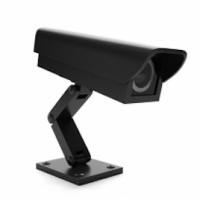Google Says No to Facial Recognition on Google Glass

For those of you who may be worried that Google Glass will usher in a new era of constant surveillance, Google is hoping to alleviate your concerns—at least when it comes to facial recognition. A post by Google regarding Project Glass explains that the company “won’t be approving any facial recognition Glassware at this time.”
Keep in mind that the key words in this case are “at this time,” which means that once Google has “strong privacy protections in place,” the next time you run into an acquaintance whose name slips your mind, Google Glass may save you some embarrassment.
All kidding aside, Google Glass has been generating a storm of protests over privacy issues, as Nick Bilton points out in The New York Times. Nick’s piece explores the two sides of the privacy debate and details the controversy surrounding the invention of cameras, which brought similar concerns more than a hundred years ago.
"About the cottage colony there is a decided rebellion against the promiscuous use of photographing machines,” The New York Times reported from Newport, R.I. “Threats are being made against any one who continues to use cameras as freely.” In another article, a woman pulled a knife on a man who tried to take her picture, “demolishing” the camera before going on her way.
Luckily for a TechCrunch writer who got the opportunity to walk around New York City with the Google Glass device, no one attempted to smash his device to bits, even though three out of the four people who talked to the writer thought he was recording them. This automatic assumption that Google Glass means constant recording is something TechCrunch believes Google needs to get straightened out.
In fact, a recent opinion piece by Michael Chertoff, the former secretary of Homeland Security, shows the fear some people have of Google Glass leading to an Orwellian future. Although to be fair, Chertoff does seem to jump to a lot of conclusions in his piece, and he greatly overestimates the power of cloud computing in capturing and analyzing a constant stream of visual data ... at least with today’s technology.
But Chertoff isn’t the only one from Washington who worries about what Google Glass means for the future of privacy. This video from the Wall Street Journal describes why Google Glass is making some lawmakers uneasy.

